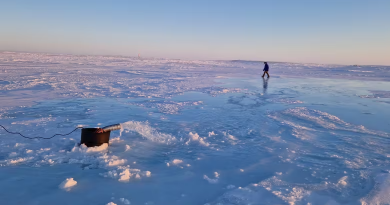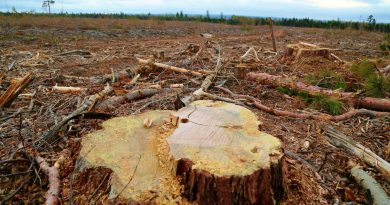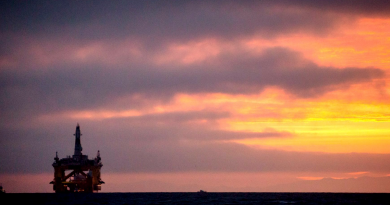Permafrost lakes are long-term climate coolers, study says

The tundra lakes that form over permafrost have been considered contributors to greenhouse gas accumulations and climate warming.
The formation and dry-up of these lakes, scientists say, emits carbon dioxide and a far more potent greenhouse gas: methane. Scientists have documented methane bubbling up from lakes in Alaska and Siberia, and venting from the Siberian sea floor. Mysterious craters that recently appeared in Siberia might have been created by methane releases, scientists say.
But over the very long-term — millennia, not years or decades — these lakes have absorbed carbon and cooled the planet rather than warmed it, according to a newly published study led by Katey Walter Anthony of the University of Alaska Fairbanks.
Thermokarst
About 5,000 years ago, Siberian lakes formed on the thermokarst — the landscapes where ice melts atop permafrost — shifted from being net carbon producers to net carbon sinks, said the study, published in the journal Nature. The international team of authors, from the United States, Russia and Germany, based their findings on field studies of 49 steep-bluff sites in the northern Siberia tundra and boreal forests. They examined the sites where permafrost had thawed, settled and refrozen, including sites with Pleistocene-aged permafrost, formed during the epoch that started about 2 million years ago and ended about 11,700 years before the present.
They found that, starting at 5,000 years ago, the amount of carbon accumulated in the deep lake sediments exceeded the amount of carbon released from those permafrost sites.
When permafrost thaws and water pools into lakes, greenhouse gases are emitted in the short term, said Miriam Jones, a U.S. Geological Survey research geologist and a co-author of the study.
“Initially, there’s a huge pulse of methane out into the atmosphere,” she said.
Over the much longer term — thousands of years, according to the study — the mosses and other plants that grow in the lakes soak up large amounts of atmospheric carbon and help stabilize the climate, according to the study. And if the lakes drained, the exposed and formerly thawed lake sediments can refreeze, creating new permafrost that locks away organic material, thus preventing decay and venting of greenhouse gases and also contributing to the net cooling effect, according to the study.
Implications for climate
At many of the Siberian sites examined for the study, researchers found that plants compacted into permafrost-protected peat appeared to be barely decomposed even after thousands of years, Jones said. “I could pull them out of the permafrost. They were these really long strands with stems and leaves, just in perfect condition,” she said.
For today’s thermokarst lakes, which are changing rapidly as permafrost thaws, the new study holds clues about future events.
If existing lakes are maintained and new lakes form, it might be good for the climate in the very long term, the study says, providing compensation for greenhouse gas emissions. The carbon absorption “will compensate for greenhouse emissions over millennial timescales if a permafrost-forcing climate persists in the region,” the study says.
But if the lakes continue what has been a documented disappearing act — shrinking and drying up when permafrost bases thaw — the prognosis could be ominous.
“Widespread permafrost loss, predicted as early as 2100 in some … subregions, will ultimately result in reduced lake and wetland abundance caused by drainage and drying, facilitating rapid sediment carbon decomposition,” the study says. Exposure from such drainage “may reverse the important role that thermokarst lakes have had in stabilizing climate for the past 5,000 years.”
Related stories from around the North:
Canada: Rare World Series footage found in Yukon permafrost, Radio Canada International
Russia: Giant virus revived from ancient permafrost in Siberia, CBC News
United States: Alaska Highway permafrost gradually disappearing: study, Alaska Dispatch



